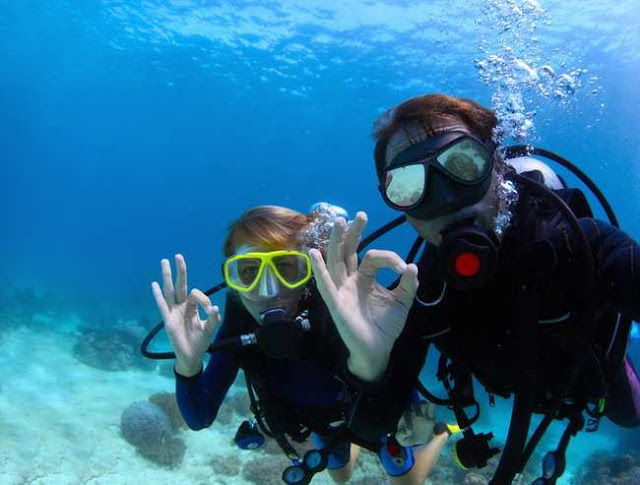Beware of Ear Diseases when Swimming and Diving
Beware of water that enters the ear when swimming. If left alone for a long time, the inner ear will become moist to make bacteria and fungus thrive. Here are some diseases of the ear due to swimming.
Exercising, especially water sports, is a fun and healthy activity. However, do not let this pleasure actually brings the risk of health problems. Protect your hearing organs from diseases of the ear due to swimming.
Diseases of the Ear Due to Swimming
The following are ear diseases that are common due to water sports activities:Swimmer's ear
Swimmer's ear, also called otitis externa, is an infection of the outer ear canal. Acute external otitis is generally caused by bacteria types Streptococcus, Staphylococcus, or Pseudomonas. The course of swimmer's ear disease starts with mild symptoms, such as:- Part of the ear canal becomes reddish.
- The ear canal feels itchy.
- The ear feels full.
- Clear odorless clear discharge from the ear.
- Discomfort if the auricle is stretched or a small protrusion section outside the ear (tragus) is pushed.
Ear fungus infection
Sometimes, frequent swimming and diving can also cause ear fungal infections (otomycosis), and not the least is a mixed infection between bacteria and fungi. This ear fungus infection is more common in people who live in humid and warm climates, as well as in people with diabetes. Symptoms of disease in one ear is similar to the symptoms of an external ear infection, it's just that generally if it is caused by a fungal infection, then the symptoms will not subside with antibiotics. Handling of ear fungal infections is by cleaning the ears by ENT doctors, then administering antifungal drugs in the form of ear drops and oral medication, and keeping the ears always dry.Barotrauma
Diving in the deep sea causes higher pressure on the outer surface of the eardrum. In this condition, the Eustachian tube will open so that the air pressure at the back of the eardrum will balance with the outside pressure. However, if the Eustachian tube is not open, then the pressure outside will push the eardrum inwards causing pain. If the diver ignores this pain and goes further in, the eardrum may rupture and sea water enters the middle ear. This condition then causes barotrauma symptoms, namely nausea, vomiting, pressure in the ear, pain in the ear, hearing loss, nosebleeds, ringing in the ears, until blood comes out of the ear. When you or someone else experiences symptoms of ear ailment due to diving above, help the sufferer to rise slowly to the surface until the symptoms disappear. Don't rise too fast. If symptoms persist even though they have risen to the surface, stop diving. Contact your doctor if after diving the ear still feels pain, ringing, difficulty hearing, and vertigo. Similarly, if you have experienced disease in the ear due to swimming before. To relieve pain, your doctor may prescribe pain medication, such as ibuprofen or paracetamol.Preventing Diseases of the Ear During Water Sports
To prevent ear disease from swimming or diving, there are at least a few things that can be done.- Dry your ears immediately after swimming with a soft towel. Tilt your head until the water in the ear canal comes out.
- Do not insert fingers or other objects, such as cotton buds, into the ear. Inserting objects into the ear can damage the thin film on the walls of the ear canal.
- Have your ear checked with an ENT specialist regularly.
- Protect your ears with a cotton swab when you are using hair spray or hair dye.
- Use special earplugs for swimming to prevent water from entering the ear canal.
- If you have previously suffered from ear disease due to swimming, consult your doctor if you want to swim or dive.




Comments
Post a Comment